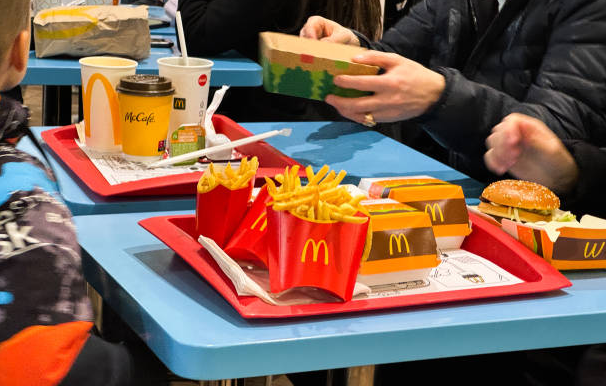
The Food and Drug Administration (FDA) has announced a significant milestone in the effort to safeguard public health: fast-food wrappers and packaging containing so-called “forever chemicals” are no longer being sold in the US.
This move comes as a result of a voluntary initiative with U.S. food manufacturers to phase out food contact packaging made with PFAS (perfluoroalkyl and polyfluoroalkyl substances), which pose a threat to human health due to their non-degradability and potential harm.
Voluntary Initiative Triumph
Initiated in 2020, the FDA secured commitments from US food manufacturers to eliminate PFAS from wrappers, boxes, and bags coated to resist grease, water, and other liquids. Notably, many fast-food chains and other manufacturers, including McDonald’s, had already ceased using wrappers containing PFAS prior to the original phase-out deadline.
PFAS chemicals have been associated with various health issues, including disruptions to cholesterol levels, liver function, the immune system, and certain types of cancer. Dr. Sheela Sathyanarayana, a pediatrics professor at the UW School of Medicine in Seattle, lauded the decision as a significant step forward.
Dr. Sathyanarayana, who has extensively researched PFAS chemicals, particularly their presence in breast milk and the environment, emphasized the importance of eliminating PFAS from packaging, describing it as a positive move in the right direction.
Read more: House Bipartisan Initiative Reveals Progressive Approach To Border Policy And Foreign Aid
PFAS Exposure Beyond Packaging

While the removal of PFAS-laden packaging from the US market addresses a primary source of dietary exposure, Dr. Sathyanarayana cautioned that PFAS contamination remains a concern in various other environmental sources.
Drinking water, she noted, is a notable avenue of exposure. Consumers worried about PFAS levels can consult maps maintained by the Environmental Protection Agency to determine if their water is affected and can invest in filters designed to remove these chemicals.
Furthermore, Dr. Sathyanarayana advised reducing consumption of meat and dairy products, as PFAS tend to accumulate in these foods. She also recommended minimizing exposure by avoiding certain indoor cleaning products containing water-resistant chemicals and removing shoes indoors to prevent tracking PFAS into homes.
Additionally, she emphasized the importance of handwashing before eating or preparing food to mitigate exposure.
While the elimination of PFAS from fast-food packaging marks a positive step, it underscores the broader need for continued vigilance and action to mitigate the risks posed by these persistent chemicals in our environment and daily lives.
Read more: American Airlines Announces $10 Increase In Airport Checked Bag Fee

